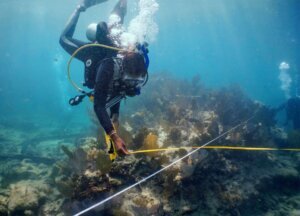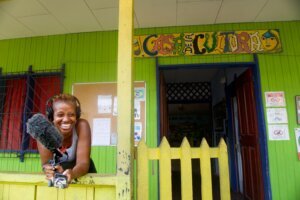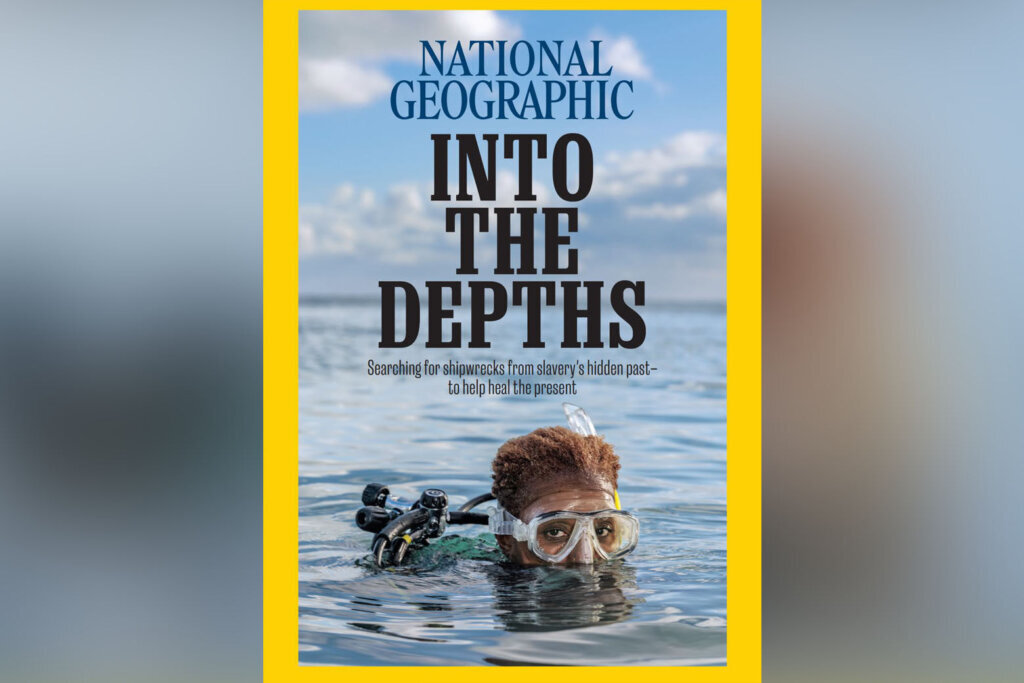There is a piece of Black history that lies at the bottom of the ocean.
During the 400-year trans-Atlantic slave trade, 12,000 ships brought 12.5 million Africans to the Americas. But not every slave ship made it to shore.
Approximately 1,000 ships carrying enslaved people were wrecked, and less than 10 have been found. National Geographic Explorer Tara Roberts follows a group of Black scuba divers seeking to find and document slave ship wreckages.
Roberts became a scuba diver after visiting D.C.’s National Museum of African American History and Culture: “I saw this picture on the second floor of the museum of a group of Black women on a boat in wet suits,” she said

She learned that they were part of a group called Diving With A Purpose, on a mission to uncover the lost history of wrecked slave ships and the enslaved Africans who were transported on them.
Roberts, who was living in the District at the time, made a life-altering choice: She left her job and got trained and certified to become a scuba diver. Roberts trained with the Underwater Adventure Seekers Dive Club in D.C. and did pool training at Gallaudet University.
Her travels alongside Diving With a Purpose have taken her all over the world and were chronicled in the National Geographic six-episode podcast series, “Into the Depths,” airing now through March 3.
In each episode, Roberts says that they focus on a ship and tell its story: “We go to Mozambique, South Africa, to Costa Rica, to Senegal. We go to Alabama, we go to Florida.”
But the exploration for Roberts also takes her on a journey inside of herself.

“There was a part of me that was a bit afraid to look back at our history because there are so many notes of pain,” Roberts said.
But, she added, she soon discovered that “there’s something about this work that’s healing, that’s transformative. It empowered me.”
Roberts says they note in the podcast that D.C. is the epicenter for Black scuba diving, and that she discovered another part of our history.
“We come from a history of Black aquatic culture,” Roberts told WTOP.
The Atlanta, Georgia, native says it’s a myth that Black people don’t like water. Roberts says there’s evidence that we were expert swimmers, divers and fishermen hundreds of years before we were brought to the Americas.
“We have a history on the water,” she said.
Roberts will be featured on the cover of National Geographic Magazine’s March issue. National Geographic Studios also plans to premiere the documentary “Clotilda: Last American Slave Ship” in early February on Hulu.

This is part of WTOP’s continuing coverage of people making a difference from our community authored by Stephanie Gaines-Bryant. Read more of that coverage.







